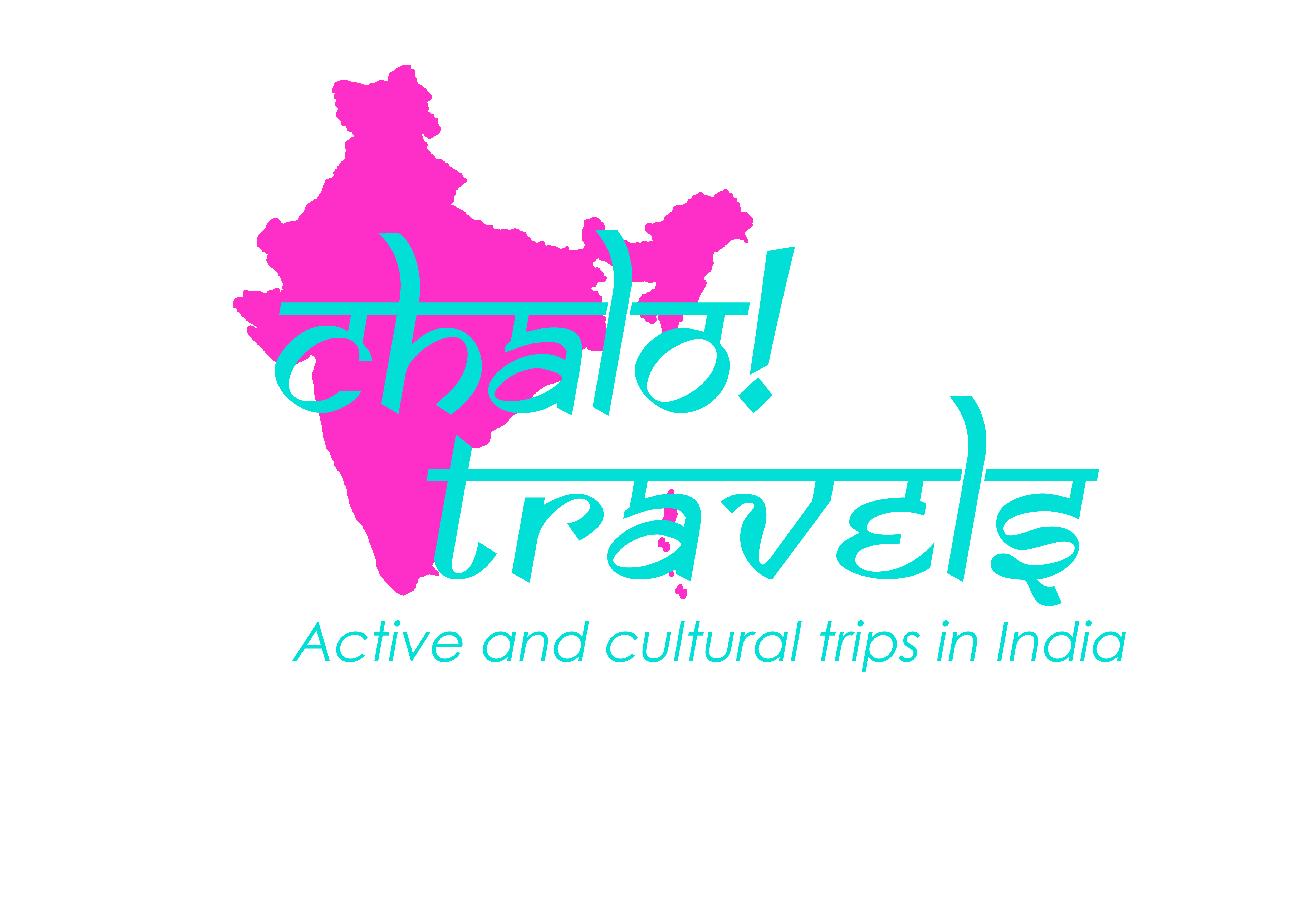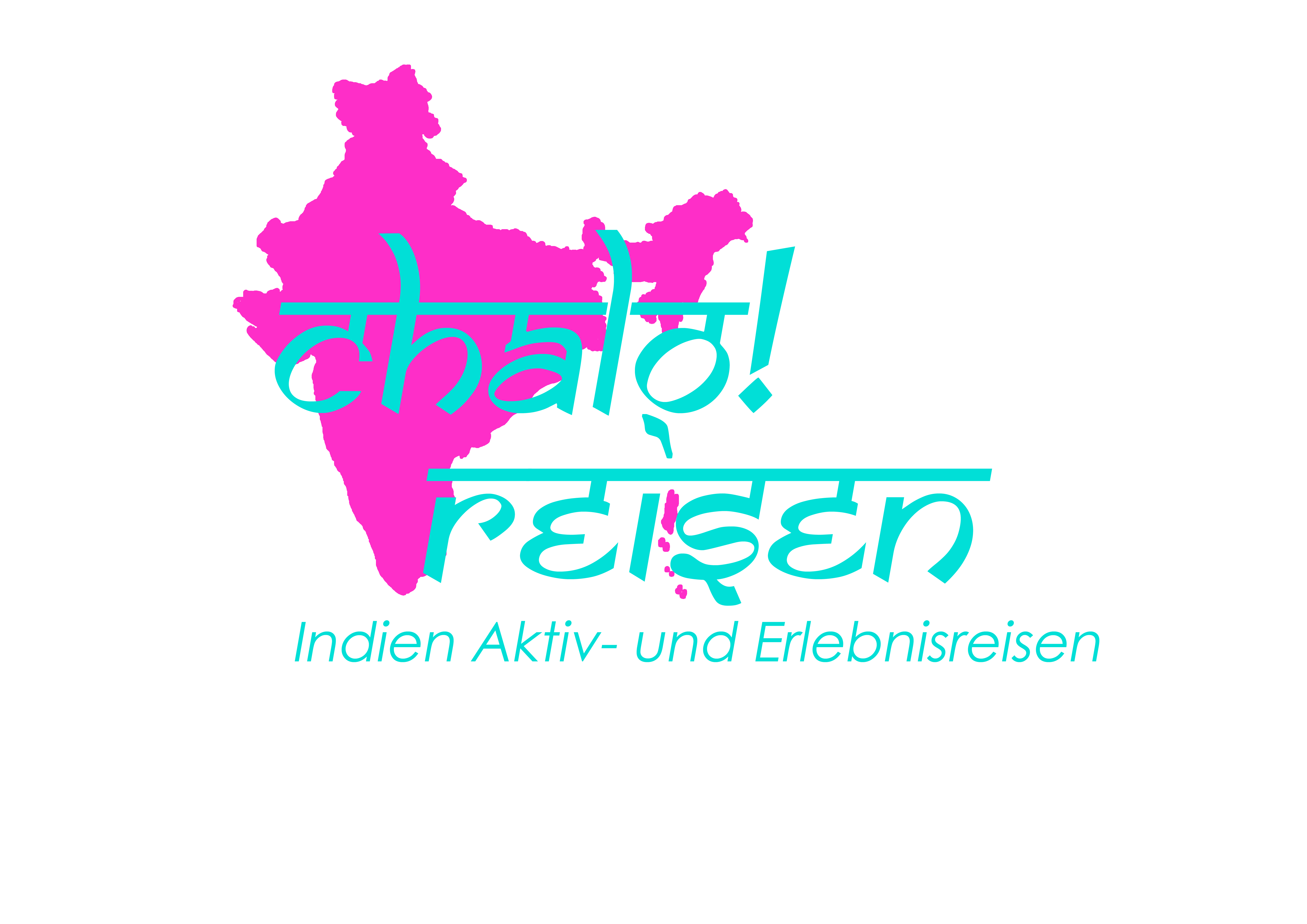Lets travel 11 years back in time
Finally back in Delhi. I have been on the road for four weeks now. Half of it I spent at my intermediate seminar in Orissa, during the rest of the time I was traveling. Mainly in South India. But I will talk about this exciting time a little later.
First of all, I have to spread the good news that we have finished the jungle landscape on the walls of our center. It turned out great. All the work, including the weekend shifts, was worth it! Elephants, bears and birds look out at the children from the walls. A snake snakes around a tree and the monkeys swing from vine to vine. The children particularly like the latter. They keep asking me to steal the monkeys’ bananas! The children love their new daycare. The last week before my big trip was especially intense because I was alone with the children. Joanna had already left for the north with her parents. I replaced a teacher and had a lot of fun having the kids all to myself for once and organizing their day!
Then it was time to say goodbye for a long time. From work, from the children and from Nani.
After a 36-hour journey, we arrived on time (!) in Chennai, a large city in southern India. This train ride alone was an experience in itself. Two nights and one day we spent together with cockroaches and one or the other rat in our compartment, which heated up pö a pö more and more (We drove quite cheap and had been too stingy to afford a compartment with air conditioning!).
South India is sooo different. This became clear to us as soon as we got off the train: warm, humid air flowed towards us and made us sweat immediately. Thousands of palm trees lined the street. No Hindi was spoken anymore. We felt like we were in another country. Before my trip to the south, I had been a strong advocate of northern India: I feel very comfortable in the north. I like the people. Am passionate about nature, love the food, and find the cities exciting. Well, after a few weeks in South India, I realized that the North is quite rough and tough in comparison. To really feel comfortable here, you have to be pretty strong and tough! I imagine it is very hard to travel first the south and then the north. The south is clean. The people are friendlier. There are fewer beggars. The food is light and simply delicious and the nature is breathtaking! I still love my north, of course, but now I know that there is also something like a “vacation country India”!
In Chennai we stayed with a family that Joanna’s father knew from before. Here we saw the sea for the first time and immediately jumped into the Bay of Bengal! The vacation could begin! From Chennai we went even further south, almost all the way to the top, our destination was Kerala, the rich land of coconuts, which is under communist leadership and has a 99% illiteracy rate. During our 9 days here, we did not encounter a single beggar! In Varkala, we sizzled in the sun on the beach during the day and swam in the Arabian Sea. In the evenings we sat under palm trees on the cliffs and ate fresh seafood. In the backwaters, a large system of lakes and rivers (similar to the Spreewald only with palm trees), we enjoyed cycling and paddling. Afterwards we went to the Westghats. Around the small town of Munnar we hiked through tea and spice plantations. By the way, not only did I smell fresh vanilla beans and suck on cocoa beans, but I was also in the land where pepper grows. The last stop in Kerala was Kochin. A wonderful place to relax and stroll. We felt in this city, which was influenced by the Portuguese, as if we had been transported to Southern Europe! There was even a promenade!!! Here we not only received a performance of the traditional dance Kathakali, but also attended an old, ritual on the beach.
We set off in the direction of Mumbai. What a city! Totally cosmopolitan. Especially in the center there are still many Victorian houses. We spent a whole day on a set for a Bollywood feature film! We participated as extras and had a lot to see. From Bombay we went across the whole of India to Orissa. One of the poorest states in all of India, where riots are going on right now from the Naxalites and the Maoists. Here, in the middle of the countryside in an organization with an integrated eye clinic, I spent the eight-day intermediate seminar.
It was wonderful to spend a few days in a place that is not Delhi. I learned a lot about Indian village life and also about the local organization. Many people here have cataracts due to malnutrition. In the clinic people get their eyesight back.
The seminar was interesting. It was especially nice to exchange experiences and ideas with the many other volunteers. But the eight days were also quite exhausting and I was already looking forward to Delhi and my work. Before that, however, we made a small detour to Calcutta. So far my favorite city in India! The many small alleys in combination with the Victorian houses had a special charm for me. Of course we also visited the grave of Mother Theresa.
Indeed, there are more poor people than average here. They are everywhere: sleeping on the sidewalk, pulling hand rickshaws, washing themselves in public places…It really takes it out of you.
Now I am finally back in Delhi. Things are not so simple here either. Of course it was just great to have the little ones around me again! At the moment there are not so many of them anymore, because the older ones are going to school and the younger ones are traveling with their families to their home villages. This gives us the opportunity to try out some more “elaborate” activities. We painted with watercolors for the first time, made sand pictures and played pot banging. The latter was the absolute highlight. We had so much fun!!! At the moment, we are solely responsible for the rascals. As always, there are financial problems, so two of the teachers have been laid off for the interim period. It is always hard to realize how donation dependent the work of ABHAS is.
In the afternoon we are doing case studies of the scholarship girls. Of course, here in India I am confronted with poverty, misery and suffering in a completely different way than in Germany. You don’t just read about it in magazines or see reports on television. No. You experience this struggle for survival already in the morning on the way to work. When the vegetable Wallah, plagued by pain and bent over, pushes the heavy cart past us. When we drive the rickshaw past a family sitting on their bedsteads by a busy road, slurping their diluted soup. When women in their beautiful saris, so noble and walking upright, carry on their heads heavy baskets filled with rubble and debris in the hot sun to help build the road. When children help their mothers to fill their buckets with drinking water, for which they have to pay 2 rupees per bucket, so that they do not use the precious water for washing. When grandmothers sit at the front door and embroider clothes with beads. They get 40 rupees for the four pieces of clothing they create a day. When 2 year old Suraj cries from hunger, but does not want to eat the banana, but rather takes it home to share with the family.
Seeing all this every day is hard. It is exhausting. It makes you tired and burns into your soul like the Delhi sun on the back of your neck. But all of that is nothing. Nothing at all to the feelings that overtake you when you additionally hear this suffering from the mouth of a child. When the 16 year old Jahanara answers my question if the family has enough to eat with a simple “No”. A no that tells me that the family never has enough to eat. A no that puts out of question that there could ever be enough to eat and a no that makes this hunger suffering so commonplace, almost normal in an abnormal sense.
But how to have enough to eat: With a cup of tea in the morning. Sometimes a lunch consisting of two roti and vegetables. And a similar looking dinner. No wonder that Jahanara suffers from anemia.
Chanchal does not have it easy either, as the only girl among five brothers. The youngest fell from the second floor 4 years ago and injured his spine. Now he needs medical treatment which is expensive. Therefore, the father wants to take his only daughter out of school.
The stories of the girls are all somehow similar: many siblings, emigrated from poor Indian states to Delhi with their family, financial problems, hardly any water, little to eat…
But although there is a danger that all these girls will drown in the masses, ABHAS makes it possible for them to have an individual future. Not only that they are supplied with medicines against their anemia and with school materials or get afternoon lessons.
ABHAS also gives the girls self-confidence. All of the girls interviewed claimed to no longer be so shy and to have become much stronger. The extracurricular activities also give the girls so much. Just not carrying responsibility and burdens for once, but participating in handicrafts or dance classes. And how beautiful and happy they look doing it. Let’s hope that the afternoon and weekend activities will not have to be discontinued due to financial difficulties!
Lastly, I asked the girls if they were happy at ABHAS. Nice to see the girls smiling too!





